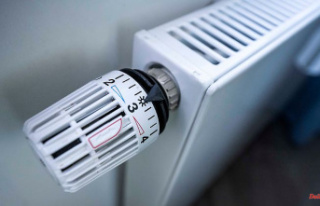The attacks by climate activists on world-famous works of art have prompted the directors of the world's most important museums to take action. They accuse the perpetrators of underestimating the sensitivity of the paintings. Safety precautions have already been increased in many places.
Dozens of the world's most important museums have condemned climate activists' attacks on artworks. Those responsible underestimated "the sensitivity of these irreplaceable objects that must be preserved as part of our world heritage," wrote the directors of more than 90 museums including the Prado in Madrid, the Louvre in Paris and the Uffizi Gallery in Florence in a joint statement.
As museum directors responsible for caring for works of art, they are "deeply shocked by this risky hazard," the undersigned wrote, with a view to numerous protests in which climate activists have glued themselves to the frames or protective glazing of famous paintings or these threw food at them.
In recent months, climate activists have attacked paintings by Vincent van Gogh, Claude Monet and Francisco Goya, among others. Johannes Vermeer's "Girl with a Pearl Earring" in The Hague has also been the target of protests. Since all of the affected artworks were behind glass, they remained undamaged. However, the historical frames are also very valuable and sensitive.
Most recently, climate activists stuck themselves to transparent tarpaulins over Andy Warhol's famous "Campbell's Soup" screenprints at the Australian National Gallery in Canberra. As the museum in the Australian capital announced on Wednesday, the works of art were not damaged during the action. The activists acted as a group called Stop Fossil Fuel Subsidies in Australia. They also sprayed graffiti on the tarps. The museum said it would not comment further on the action.
In order to prevent renewed attacks on works of art, many European museums have tightened their security measures in recent days. Until further notice, the National Museums in Berlin can only be visited after handing in jackets and bags at the cloakroom or in the lockers. This also applies to the Barberini Museum in nearby Potsdam. Other museums such as the National Gallery in London, the British Museum and the Louvre have also decided to take action. But they don't want to make them public, even on request - to protect the works of art.












